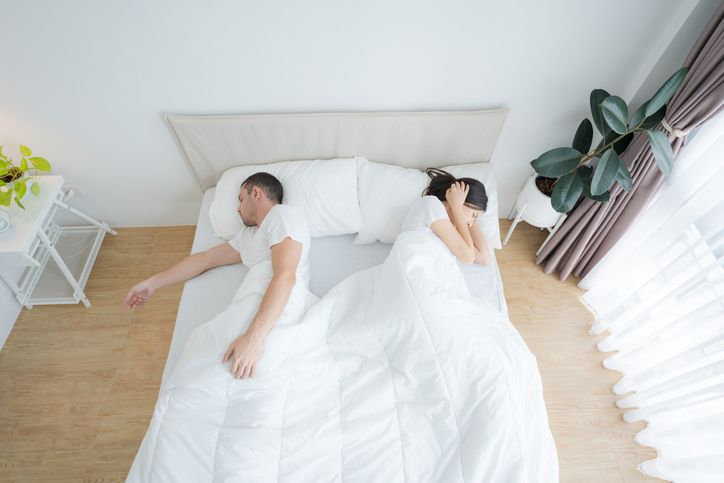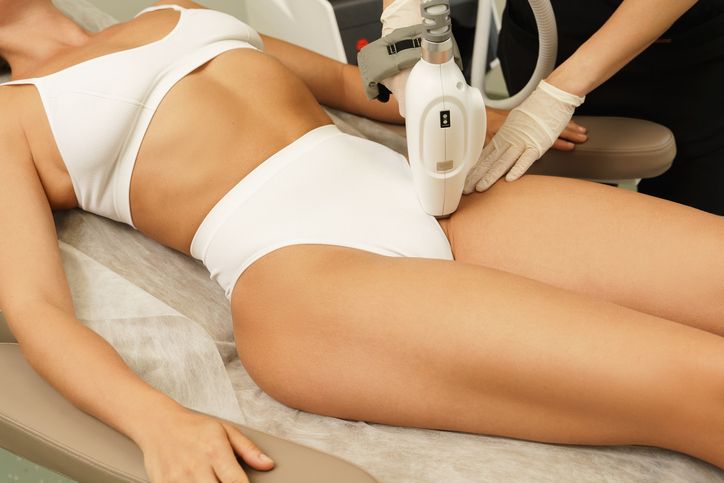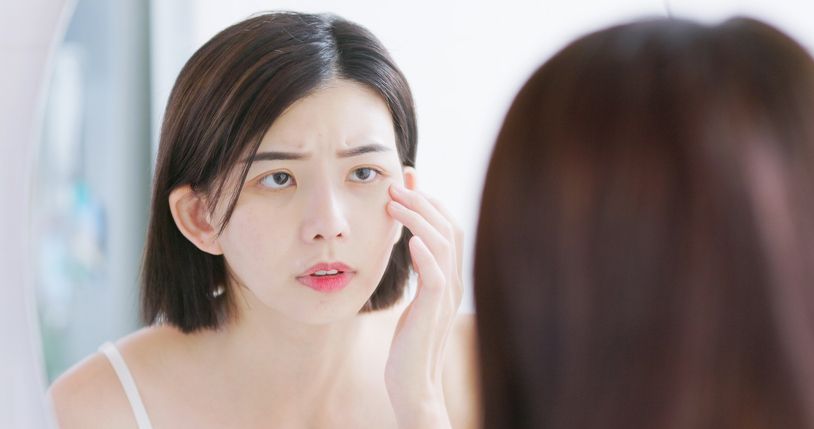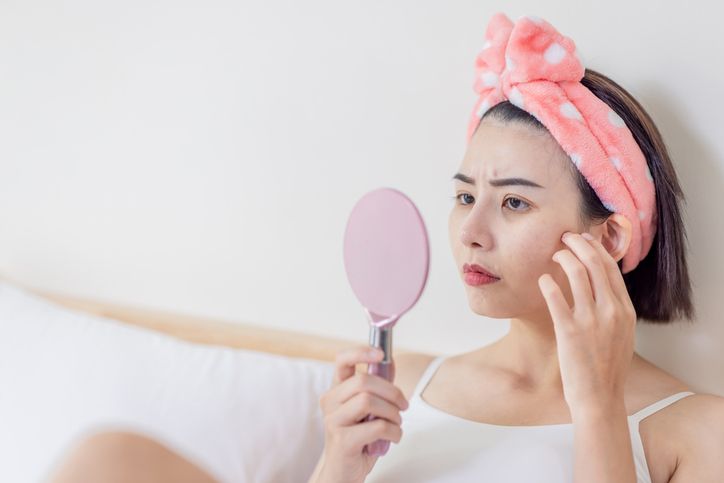- Home
- Trend
- Weight Loss Strategies
- Acne Tips
- Hair Health Information
- Blemish Removal Tips
- Acne Scar Removal Tips
- Muscle Building Techniques
- Intimate Care Tips
- Postpartum Intimate Care
- Eye Bags Wiki
- Tips for Face Slimming
- Secret of Permanent Hair Removal
- Breast Enlargement Tips
- Cure to Snoring
- Marionette Lines
- Skin-Tightening Secrets
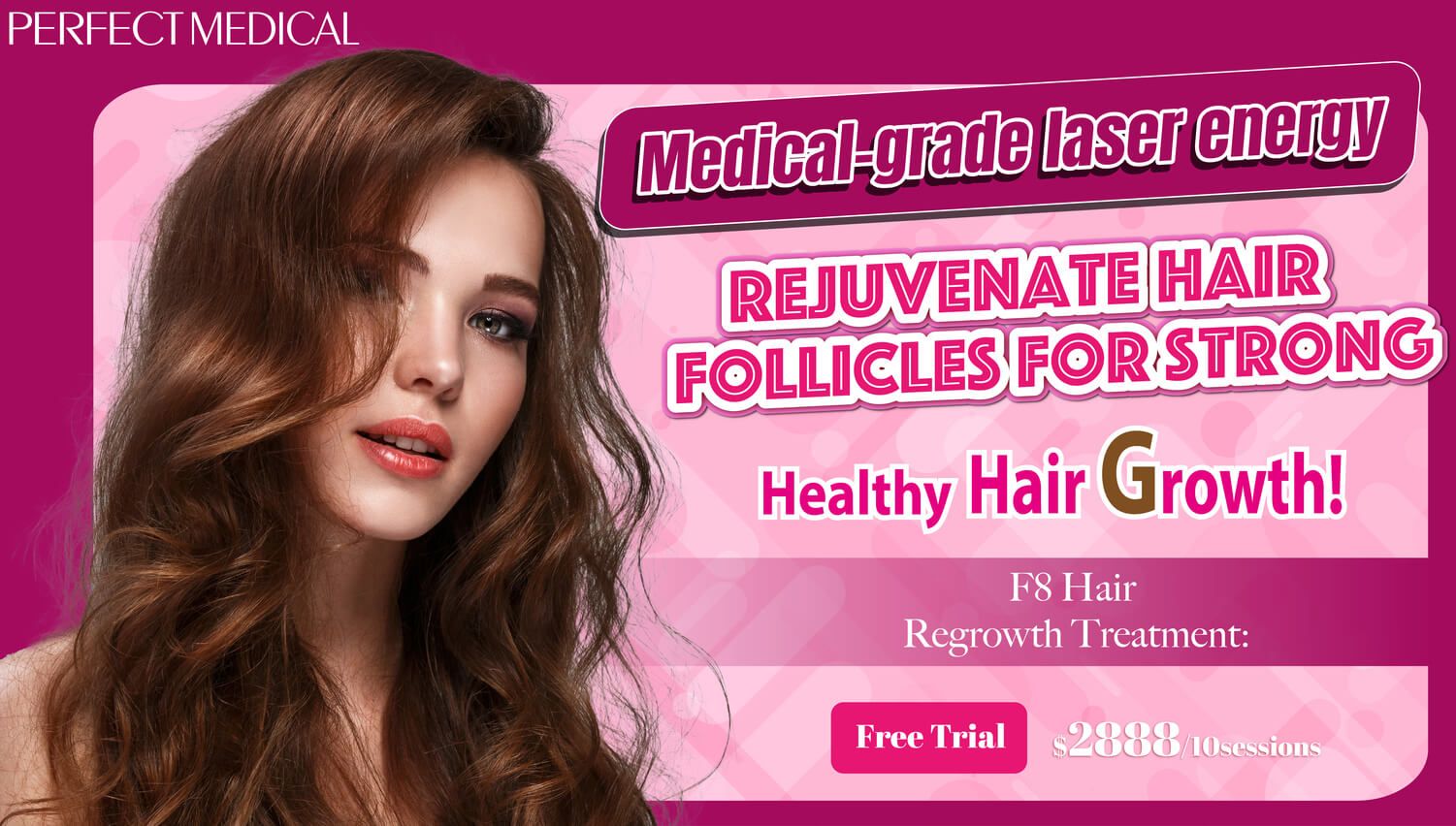
免費體驗
F8 Hair Regrowth Treatment
1 Minute Self-Registration
Date should not be before minimal date
Have you been noticing your hair getting thinner? Spotting more-than-usually hair shedding in the shower and on your pillow? Seeing your scalp peeking through your hair? Rest assured that you are not alone! Thinning hair among Hong Kong women is more common than you might think. In Hong Kong, a surprising number of women are grappling with thinning hair, with studies suggesting that up to 40% of women may experience some degree of hair loss by the time they reach their 50s. This trend isn't just about aging; younger women are also affected, often due to the city's high-stress environment, lack of physical activities and diet changes. But here's the good news: with the right hair care tips, regaining fuller, healthier locks is within reach. Let’s get into the common causes of hair loss, as well as essential oils, habit adjustments and advanced treatments for growing back a head of thick, beautiful hair!
1
8 Common Causes of Hair Loss for Women
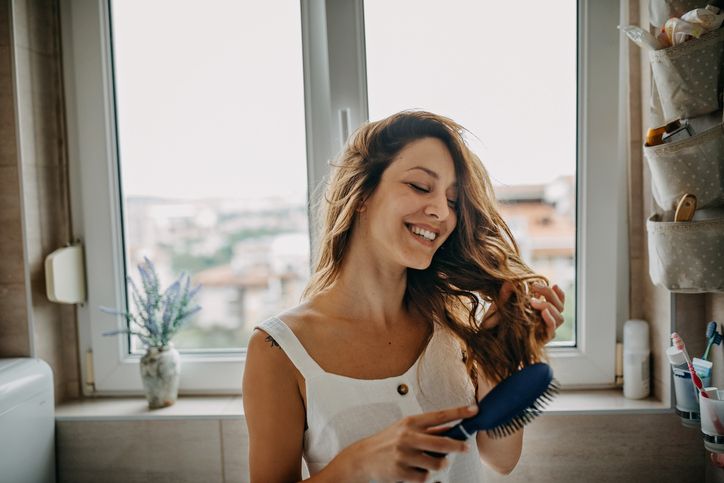
Genetics
The root of many women's hair thinning woes often traces back to genetics, specifically female pattern baldness or androgenetic alopecia. This type of hair loss manifests as a noticeable decrease in hair volume, especially along the crown, pointing to a common cause of hair loss in women. It's a hereditary issue, with the genes responsible being passed down through families. If you're noticing your hair is thinning or your scalp becoming more visible, it could be due to female pattern hair loss, a condition that's particularly prevalent after hormonal shifts like menopause.
Hormonal Changes
Life events such as pregnancy, menopause, and thyroid issues can significantly influence your hair health, potentially leading to hair loss. High estrogen levels during pregnancy may give you fuller, healthier-looking hair, but the postpartum period might bring about sudden hair loss as hormone levels drop. Menopause can also cause your hair to thin due to decreased estrogen and progesterone. Additionally, thyroid imbalances can disrupt your hair growth cycle, causing hair loss, a symptom that shouldn't be ignored.
Medical Conditions
Certain medical conditions, including alopecia areata, where the immune system attacks hair follicles, can cause your hair to fall out. Scalp conditions like ringworm not only affect your scalp's skin but can also lead to hair loss. Chronic illnesses such as lupus and diabetes might also cause your hair to thin, as these conditions stress the body and can interfere with hair follicle function and hair growth.
Medications
The side effects of various medications can include hair loss, affecting how your hair grows and leading to shedding. Whether it's treatment for cancer, arthritis, depression, or even high blood pressure, these drugs can disrupt the normal hair growth cycle and cause temporary hair loss. It's important to understand that this type of hair loss may be a result of your medication.
Nutritional Deficiencies
For your hair to grow healthy and strong, it needs a diet rich in iron, protein, and vitamins. Iron deficiency, a common cause of hair shedding, can be particularly problematic for women with heavy menstrual cycles or those not consuming enough iron-rich foods. Similarly, lacking sufficient protein and vitamins can weaken your hair, making it brittle and more prone to shedding. Ensuring you have a balanced diet is crucial in preventing hair loss.
Stress
The impact of stress, both physical and emotional, can be a significant factor in hair loss, leading to conditions such as telogen effluvium. This occurs when stress forces a large number of hair follicles into a resting phase, with shedding happening months later. Experiencing stressful events, whether it's surgery or emotional distress, can trigger this type of temporary hair loss, highlighting the importance of managing stress for hair health.
Smoking
Smoking can severely damage your hair follicles, leading to thinner hair and accelerating hair loss. The toxins found in cigarette smoke impair blood circulation to the scalp and increase oxidative stress, which can weaken the hair follicle and disrupt the hair growth cycle. Quitting smoking can significantly improve your hair health and reduce hair loss.
Hairstyles and Treatments
Wearing your hair in tight ponytails, braids, or cornrows can cause traction alopecia, a type of hair loss that results from excessive tension on the hair roots. Overusing chemical treatments such as dyes, bleach, straighteners, and perms can also damage your hair, leading to breakage and loss. These practices not only weaken the hair shaft but also strip your hair of natural oils, making it dry, brittle, and more likely to fall out. It's essential to wear your hair in styles that don't pull too tightly and to limit chemical treatments to preserve your hair's strength and health.
2
4 Essential Oils for Beautiful Hair Growth
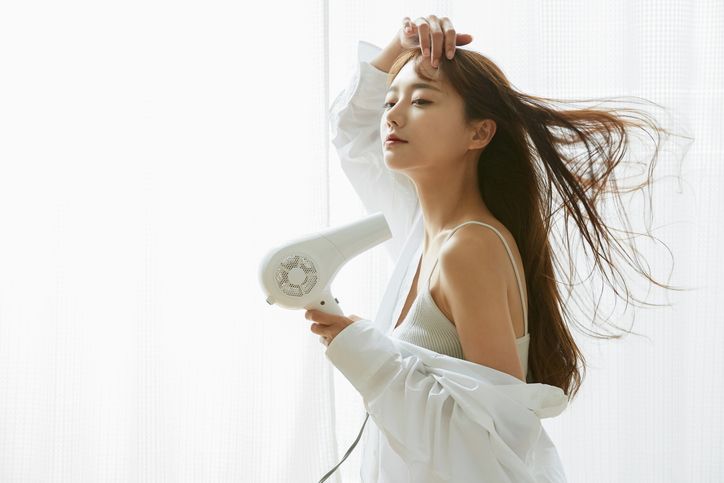
If you have even dabbled with essential oils, you will know the magical powers they have in improving our health and relaxing our minds. A few drops of essential oils can nurture and improve your hair health. With regular usages, they can enhance scalp and hair follicle health and even prevent hair loss. Here's a closer look at the 4 essential oils that contribute most to hair vitality:
Peppermint Oil
Dubbed the ultimate solution for stimulating new hair growth, peppermint oil is a go-to for those battling thinning hair or hair loss. Its potent ability to boost scalp circulation not only encourages the growth of healthy hair but also tackles the common cause of hair thinning by ensuring your scalp and hair follicles are rich in oxygen and nutrients. The cooling effect of peppermint oil also offers relief from scalp irritation, making it a perfect addition to your hair care regimen for achieving luscious, fuller hair. Embrace the power of peppermint oil to awaken dormant hair follicles and revel in the resurgence of dense, vibrant hair.
Rosemary Oil
Hailed as a natural alternative to minoxidil, rosemary oil stands out for its effectiveness in treating various types of hair loss, including androgenic alopecia and female pattern baldness. Its capacity to enhance cellular regeneration and improve hair thickness positions it as an essential tool for anyone aiming to slow hair loss and encourage the growth of healthy hair. By safeguarding hair follicles from environmental damage and nourishing them, rosemary oil lays the groundwork for substantial hair growth, helping you to regain confidence in your hair’s volume and health.
Lavender Oil
Celebrated for its stress-relieving fragrance, lavender oil also plays a crucial role in promoting hair health and combating hair loss. Its anti-inflammatory properties soothe scalp conditions that cause hair to thin, while its ability to moisturize dry scalp supports the ideal environment for new hair growth. For those experiencing pattern hair loss or temporary hair thinning, incorporating lavender oil into your routine can provide a dual benefit of reducing scalp stress and accelerating cell regeneration, making it a cornerstone for anyone looking to enhance their hair's density and vitality.
Tea Tree Oil
Tea tree oil is a powerhouse in addressing scalp health, a vital factor in preventing and treating hair loss. Its antimicrobial qualities effectively combat dandruff and seborrheic dermatitis, conditions known to hinder hair growth. By unclogging hair follicles and clearing away sebum buildup, tea tree oil ensures that your scalp remains healthy, reducing the likelihood of temporary or patchy hair loss. Integrating tea tree oil into your hair care practices not only promotes a cleaner, healthier scalp but also supports the strength and silkiness of new hair growth, offering a comprehensive approach to maintaining your hair's natural beauty.
3
5 Lifestyle Habits to Prevent Female Pattern Hair Thinning
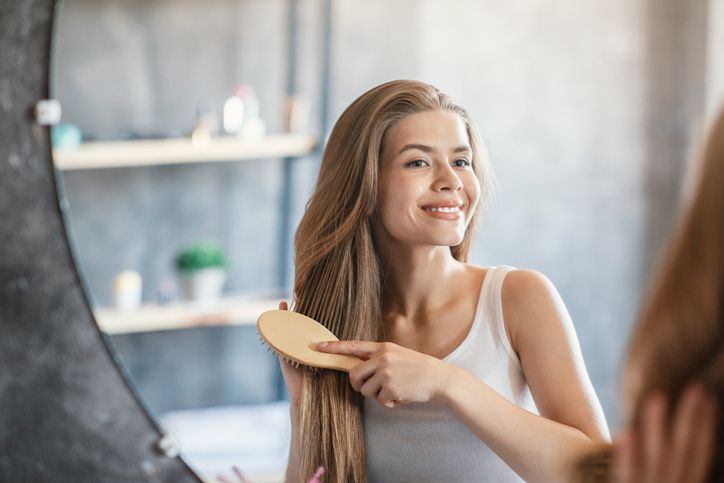
In the battle against female hair loss, certain lifestyle adjustments can make a significant difference. Let’s see how each of the following habit can help you regain and maintain thick, healthy hair!
Balanced Diet
Your hair’s vitality starts on your plate. Embracing a diet rich in vitamins, minerals, and proteins is crucial for preventing hair loss and encouraging healthy hair growth. You should look for foods high in iron, zinc, and vitamins A, C, and E for supporting the hair growth cycle and strengthening hair follicles. In addition, omega-3 fatty acids, commonly found in fish, can also help maintain healthy hair and scalp, ensuring your hair follicles are nourished for producing strong, resilient hair.
Reducing Stress
Stress is a well-known trigger for various types of hair loss, including telogen effluvium and alopecia areata, conditions that are associated with sudden hair shedding and overall thinning. Stress-reduction habits like yoga, meditation, and mindfulness techniques can significantly lower your stress levels and improve blood flow to the scalp, thereby promoting healthier hair growth and helping you prevent stress-induced hair loss.
Avoiding Harsh Treatments
Frequent and excessive styling, heat tools, and harsh chemical treatments put considerable strain to your hair and scalp, thereby damaging hair follicles and increasing hair shedding. To protect your scalp and hair, opt for gentler hair care routines with products with soothing natural ingredients. Avoid traction alopecia (hair loss by constantly pulling on the hair) by loosening tight hairstyles into loose styles. Minimizing heat styling can retain moisture from the hair cells, preserve your hair’s natural oils and strength, thus reducing the risk of breakage and thinning.
Scalp Care
A healthy scalp is the bedrock of hair growth. Regularly washing your hair with a gentle exfoliating shampoo can unclogs hair follicles and remove buildups, thus preventing inflammation and infection. To boost blood circulation, you can use scalp massager to gently rub the shampoo onto the scalp in circular motions massages. The improved blood flow increases nutrient flow to your scalp, nourishing your hair follicles and encouraging the growth of new hair. This practice supports the natural hair growth cycle, preventing temporary hair loss conditions such as telogen effluvium.
Regular Exercises
Exercise isn’t just good for your body; it’s vital for your hair health too. Regular physical activity boosts overall blood circulation, including to your scalp, ensuring that your hair follicles receive the nutrients they need to produce healthy hair. Exercise also helps reduce stress, a significant cause of hair thinning and loss in women. Whether it’s a brisk walk, cycling, or a yoga session, finding an activity you enjoy can help slow down hair loss and promote the growth of strong, healthy hair.
4
4 Advanced Treatments for Hair Loss

Essential oils and lifestyle changes are great for hair loss, but if you are seeking for fast and definitive results, you cannot go on without the help of advanced hair loss treatment. Each of these treatments are medically-proven to enhance your hair growth efforts significantly, helping you address thinning hair and baldness proactively. Here's an insightful look into the 5 most science-backed treatments:
Minoxidil
When you notice signs such as hair thinning, excessive hair shedding or balding spots, Minoxidil can be your first line of defence. Minoxidil is known for its powerful effectiveness in stimulating new hair growth. It usually comes in topical solution-form such as shampoo or hair serum. From doctor-prescriptions to over-the-counter products, Minoxidill solutions are easy to obtain. Application is easy: you simply need to apply them onto the scalp twice-daily during or after hair-washing. Still, side effects are common: some individuals might encounter scalp irritation, redness, scalp acnes and changes in hair textures. More severe reactions include nausea, headaches, facial swelling, heart palpitations and more.
Hair Transplant Surgery
If you are facing severe hair loss or bald spots, hair transplant surgery is a direct and transformative solution. This procedure involves relocating hair from your hairier scalp areas (mostly the back of head) to the thinning or balding parts of your scalp. From then on, your relocated hair should take roots and grow normally, slowly covering your bald spots. Hair transplant surgery offers significant cosmetic improvement in a short period of time. Still, while the prospect of restored hair density is enticing, the surgical nature of this option is usually associated with expensive costs, high risk of scarring, likely post-surgical complications and lengthy recovery process. It's a long-term, effortful and relatively risky commitment, but for many, the result is worth it.
Platelet-Rich Plasma (PRP) Therapy
PRP Therapy is a popular low-invasive hair loss treatment. Theoretically, this treatment utilizes your body's own healing mechanisms to stimulate the scalp and hair follicles. This minimally invasive procedure involves drawing your blood, extracting the plasma which is high in platelet concentration, and injecting it into the balding scalp areas. Platelet is rich in “growth factors”, which are proteins that aid in tissue healing and regeneration. These growth factors can energize hair follicles into growing strong, beautiful hair. While PRP therapy can promote regrowth, achieving optimal results requires patience and possibly multiple sessions. Individual responses vary.
Low-Level Laser Therapy (LLLT)
LLLT provides a gentle yet effective, fully non-invasive approach to treating hair loss. Laser thermal energy sweeps across the scalp to activate scalp tissue and hair follicle growth, stimulate the hair follicles into generating new, healthy, thick hair strands naturally. While beauty clinics offer the most professional, safest and most effective treatment experiences, convenient home-use devices also make this treatment accessible, allowing for consistent application without disrupting daily life schedules. LLLT is ideal for those seeking a straightforward solution to hair thinning. Moreover, LLLT can complement other hair loss strategies, such as essential oil remedies and hair growth shampoos, enhancing overall results. Although patience is key, as improvements may take some time to become apparent, the convenience and low-risk aspect make LLLT a compelling option for many.
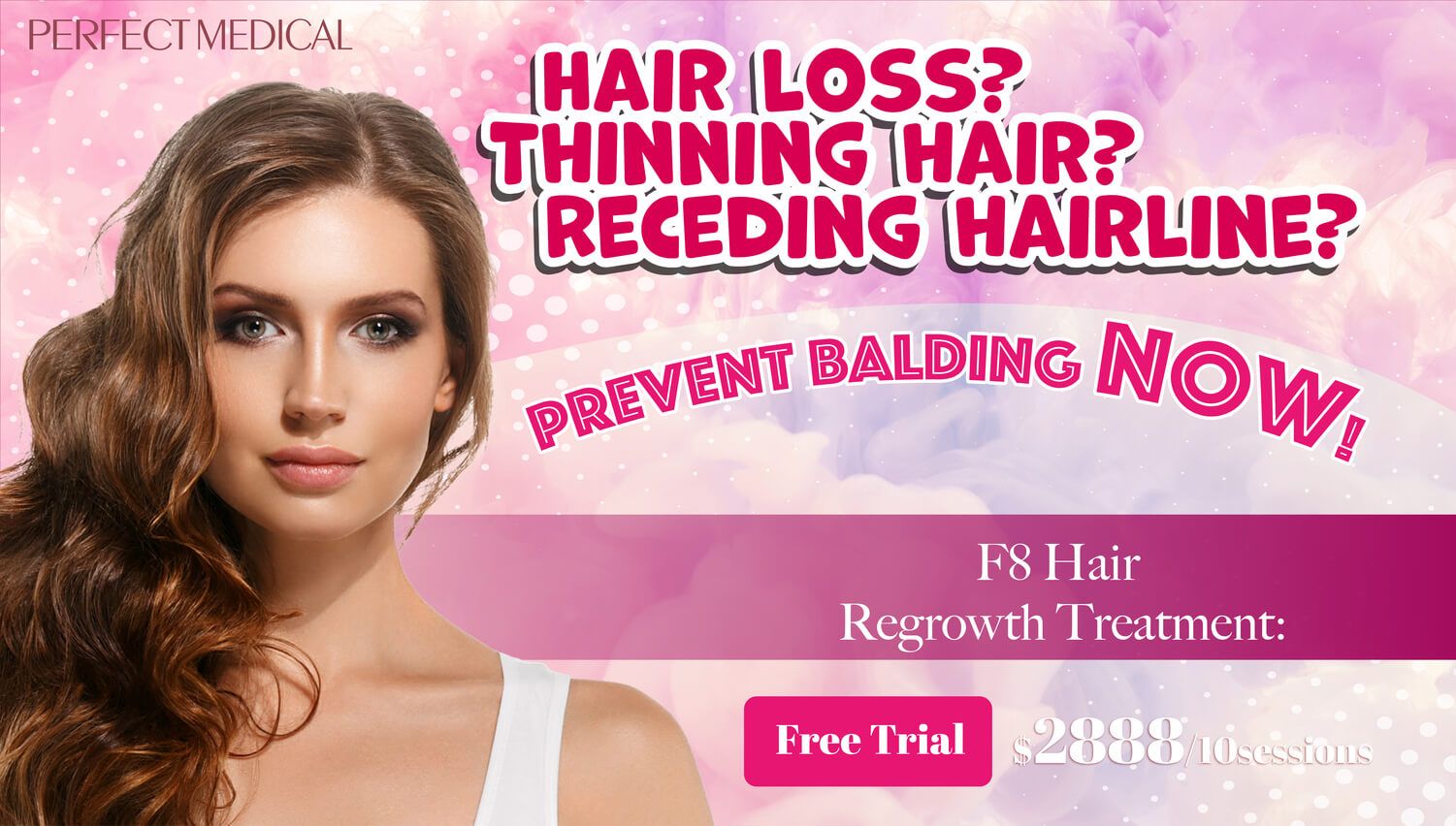
免費體驗
F8 Hair Regrowth Treatment
1 Minute Self-Registration
Date should not be before minimal date
5
F8 Hair Regrowth Treatment: Trustworthy, Non-Surgical Solution to Thinning Hair
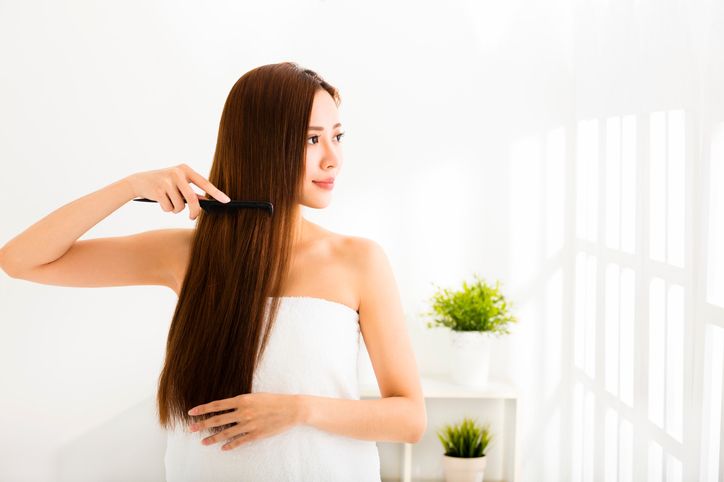
Discover Perfect Medical’s F8 Hair Regrowth Treatment, a leading option in Hong Kong for safe and potent hair rejuvenation.
This treatment employs gentle bio-laser energy that sweeps across the scalp without discomfort, reaching deep to activate hair follicles for robust, natural hair regeneration.
The treatment laser energy also enhances capillary strength and blood circulation, ensuring your scalp and hair roots receive essential nutrients for optimal health.
Additionally, our specialized, medical-grade hydrating serum is applied to the scalp, enhancing moisture and nutrient delivery to the hair roots and balancing oil production, which rejuvenates active hair follicles. Enjoy visible reductions in hair loss and vibrant hair growth in just 3 months, thanks to a revitalized scalp and follicles!
Our bio-laser treatment is entirely pain-free and does not cause any skin irritation, making it a comfortable experience with no downtime. You can immediately return to your everyday activities after each session.
Secure your spot online for a complimentary trial of Perfect Medical’s F8 Hair Regrowth Treatment, which includes a free hair and scalp analysis!
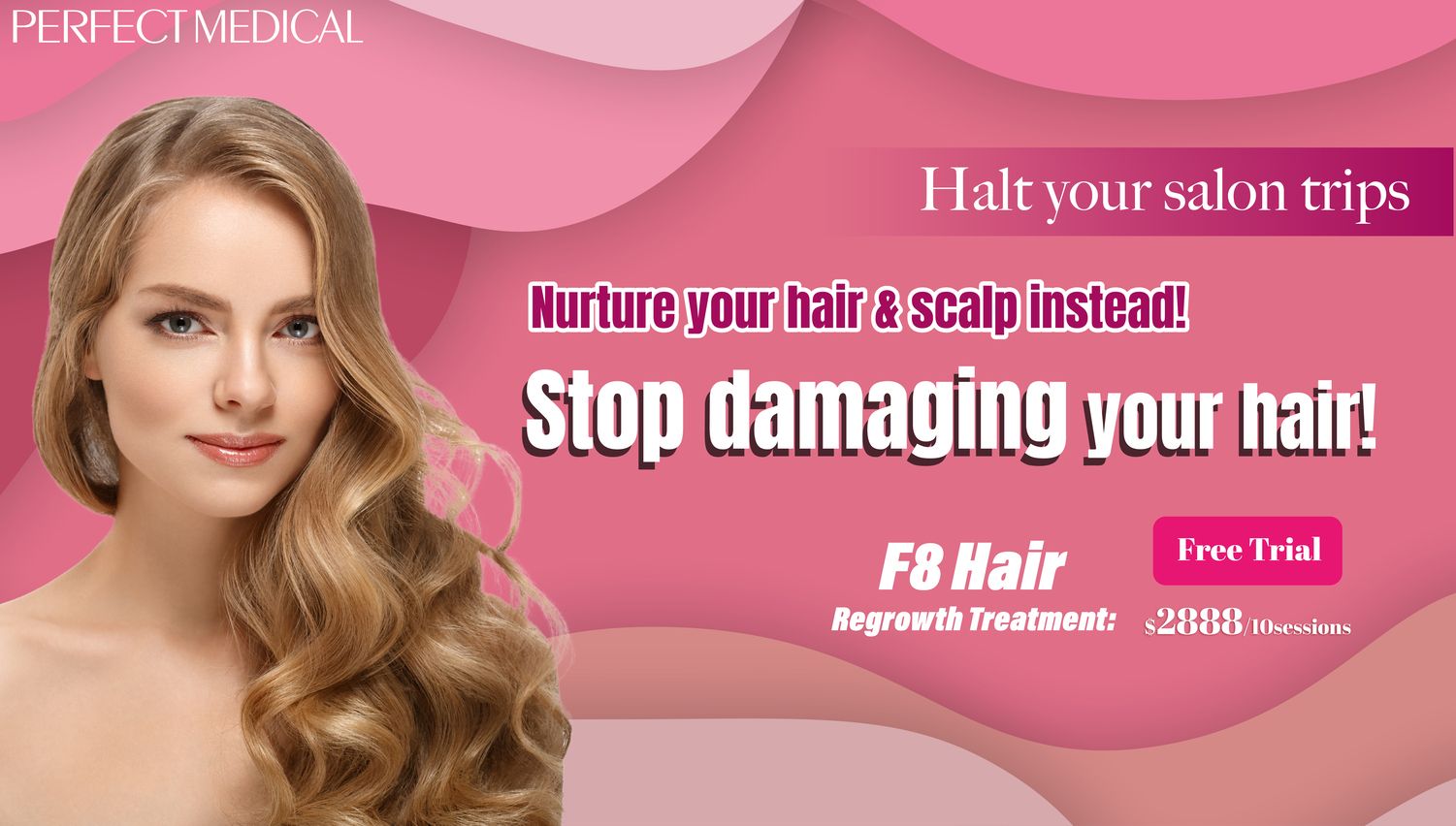
免費體驗
F8 Hair Regrowth Treatment
1 Minute Self-Registration
Date should not be before minimal date
FAQ

1) Why do women who live in the cities suffer from worse hair loss problems?
Women in cities often face increased hair loss due to higher stress levels, poor diets, and a fast-paced lifestyle. The urban environment exposes hair to pollutants and toxins that can weaken hair follicles, while stress can disrupt the hair growth cycle, leading to more pronounced hair thinning and loss.
2) Give me a home remedy recipe with essential oils for hair growth?
For a simple home remedy, mix 2 tablespoons of carrier oils (e.g. jojoba oil, coconut oil, olive oil) with 5 drops of rosemary, peppermint, tea tree or lavender essential oil. Warm the mixture slightly with your hands, apply it to your scalp evenly with a gentle massage, leave it on for at least an hour, then wash it out. This blend stimulates the scalp and hair follicles, promoting hair growth.
3) Why is a scalp massager better than my own fingers for hair washing?
A scalp massager can distribute and apply pressure more evenly than fingers, enhancing blood circulation more effectively. It also helps in deeply cleansing the scalp, removing dead skin cells and product buildup without causing damage or irritation, which is crucial for healthy hair growth.
4) How to prevent possible side effects from Minoxidil topical products?
To minimize potential side effects from Minoxidil, start with the lowest concentration, apply it strictly to the scalp to avoid unwanted hair growth on the face or hands, use the recommended amount, and wash your hands thoroughly after application. Avoid using on irritated or sunburned scalp areas.
5) Why is LLLT Therapy the best non-invasive hair growth treatment there is?
LLLT Therapy stands out as the best non-invasive hair growth treatment due to its ease of use, lack of side effects, and effectiveness in stimulating hair follicles to enhance thickness and density. It uses low-level lasers to promote cellular activity and hair regrowth without causing discomfort or requiring downtime.






